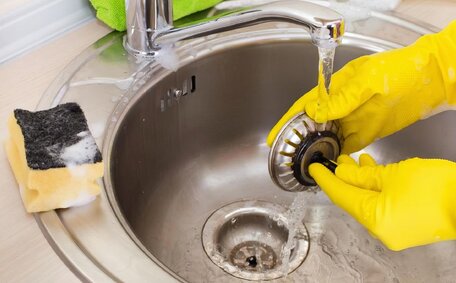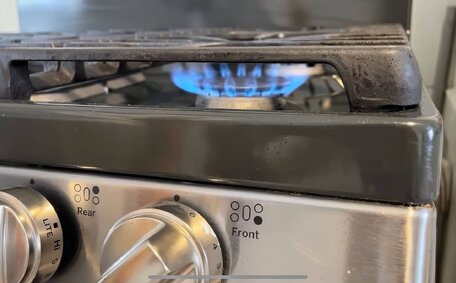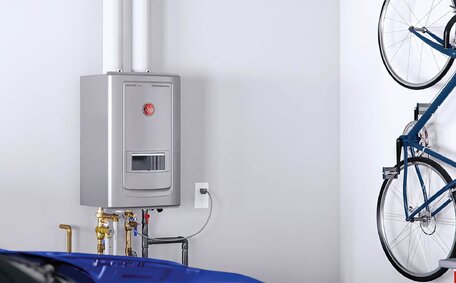Introduction: Shared Responsibility for Plumbing Issues in Rentals
When it comes to plumbing repairs and maintenance in rental properties, both landlords and tenants have a shared responsibility. As highlighted by leading Pennant Hills plumbing experts, effective communication and a clear understanding of each party’s obligations is key to ensuring plumbing issues are dealt with promptly and fairly.
Generally, landlords are responsible for structural plumbing maintenance and major repairs. This includes issues with pipes, drains, water heaters and other fixtures that service the property. Tenants are usually responsible for minor issues like drain blockages they cause and day-to-day plumbing maintenance.
However, the specific division of responsibility can vary depending on factors like tenancy laws in your state and the details of your individual rental agreement. Both landlords and tenants should be clear on their obligations to avoid conflict when plumbing problems arise.
Defining Plumbing Emergencies vs Non-Emergencies
When it comes to plumbing issues in rental properties, it’s important to understand the difference between emergencies that require urgent attention and standard repairs that can wait.
Plumbing emergencies are problems that pose an immediate threat of severe damage or harm if not addressed quickly. Examples include:
- Burst water pipes causing severe flooding
- Complete loss of hot water supply
- Blocked drains causing sewage backups
- Gas leaks
- Broken, leaking or blocked toilets making them unusable
In emergency situations like these, tenants should immediately contact their landlord or property manager. Waiting too long can allow the problem to worsen and lead to health hazards, property damage and high repair costs.
Non-emergencies are issues that need repairs but don’t require instant attention. These may include:
- Slow draining sinks
- Leaky taps or showerheads
- Noisy pipes
- Partial loss of hot water supply
- Toilet clogs that can still be plumbed
For minor problems like these, tenants should notify their landlord in a timely manner, but calling in emergency plumbers is not necessary.
Understanding whether a plumbing issue is an emergency or not will ensure repairs are handled effectively. Clear communication between landlords and tenants is key.
Tenant Responsibilities for Plumbing Maintenance
Tenants have several key responsibilities when it comes to ongoing plumbing maintenance in a rental property.
Tenants must keep sinks, drains, and toilets free of hair, grease, and other debris that could cause clogs or blockages leading to plumbing repairs. It’s important to use drain covers and avoid putting food scraps, coffee grounds, and other particles down the drain.
Tenants should also take care not to damage any plumbing fixtures through misuse or neglect. For example, they should refrain from pouring grease or harsh chemicals down drains. Tenants may be liable for repairs if their actions directly caused damage.
Another responsibility is promptly reporting any leaks, clogs or other plumbing issues to the landlord or property agent as soon as they arise. For urgent repairs, the tenant can hire a licenced plumber themselves and bill the landlord if the issue poses an immediate threat.
Waiting too long can allow the problem to worsen and lead to health hazards or property damage.
Tenants are usually responsible for replacing washers on leaky taps and showerheads when necessary. They may also be required to regularly clean aerators on taps.
Following their rental agreement terms and maintaining open communication with the landlord or agent regarding plumbing matters is key for tenants. Fulfilling these maintenance duties helps avoid conflicts over who is responsible for repairs.
Landlord Obligations for Plumbing Systems
p>p>p>p>p>p>p>p>p>p>p>p>p>p>p>p>p>p>
Handling Plumbing Emergencies as a Renter
p>p>p>p>p>p>p>p>p>p>p>p>p>p>p>p>p>p>p>
Seeking Cost Recovery as a Tenant
p>p>p>p>p>p>p>p>p>p>p>p>
Importance of Communication for Plumbing Issues
Effective and timely communication between landlords and tenants is essential when dealing with any plumbing issues in a rental property.
More than simply reporting problems as they arise, maintaining open lines of dialogue can help avoid conflicts and frustrations for both parties.
Tenants should aim to promptly notify landlords of leaks, clogs or other plumbing problems using clear descriptions and details around the issue. Taking photos or videos can also help illustrate the problem.
Equally, landlords and property managers should respond to maintenance requests from tenants in a timely manner – ideally within 24 hours for urgent issues. They should provide clear guidance around next steps and timeframes.
For severe plumbing emergencies like burst pipes or sewage backups, immediate phone contact should be made in addition to any written notice. Both parties should be readily contactable in case follow up communication is required.
Documenting all communication around plumbing repairs in writing creates a helpful record if any disputes arise regarding who is responsible for addressing issues and covering costs.
Remaining calm and constructive when issues occur, and dealing directly in a reasonable timeframe can help maintain positive ongoing relationships between landlords and tenants.
Above all, a spirit of cooperation and understanding around plumbing responsibilities can go a long way towards effectively resolving any problems for rental properties.
Key Takeaways for Renters Dealing with Plumbing Problems
When dealing with plumbing issues as a renter, there are some key takeaways to keep in mind:
- Maintain open communication with your landlord or property manager about any plumbing problems right away.
- Understand whether an issue is an emergency or standard repair so it can be addressed promptly and properly.
- Keep drains and fixtures well-maintained by preventing debris buildup and damage.
- Document all communications and repairs in writing in case of disputes over responsibility.
- Be familiar with your rights and responsibilities as outlined in the tenancy agreement.
- In emergencies, be prepared to call in professional help immediately to mitigate damage.
- Approach problems cooperatively with your landlord for the quickest resolution.
- Ensure urgent repairs are completed by licenced plumbers to avoid further issues.
- Read your tenancy agreement thoroughly so you know who is responsible for different types of plumbing repairs.
Dealing effectively with plumbing issues in rental properties requires clear communication, prompt action and a good understanding of both the tenant’s and landlord’s obligations. Maintaining positive relationships and addressing problems cooperatively is key.






